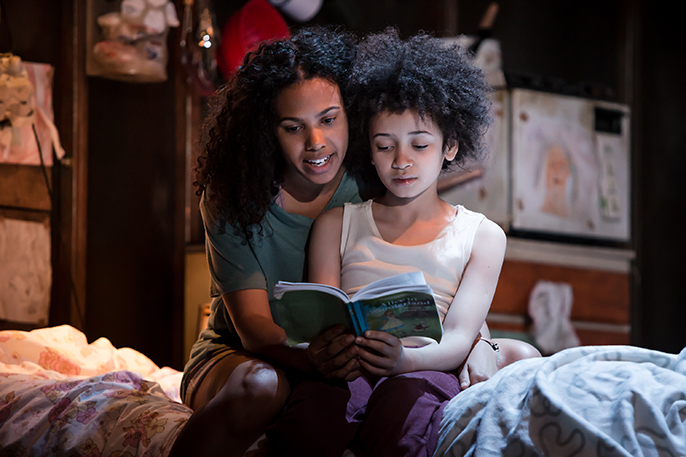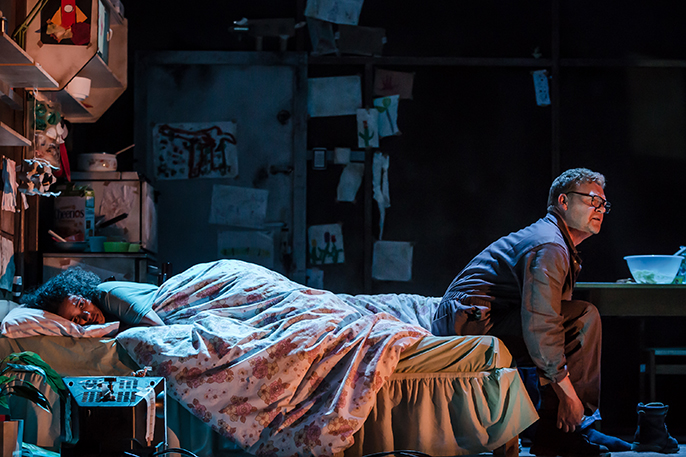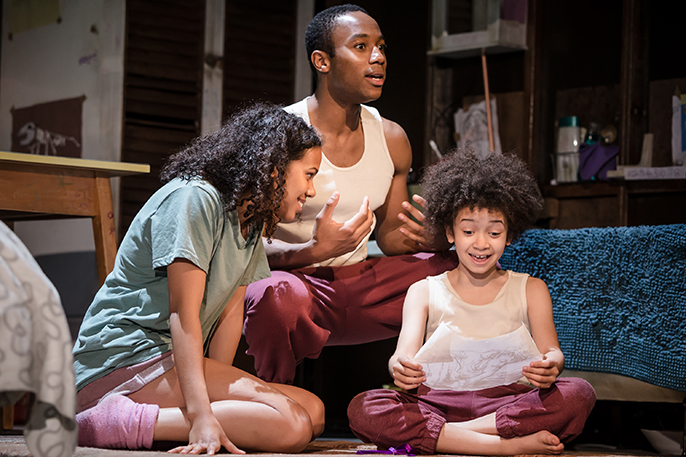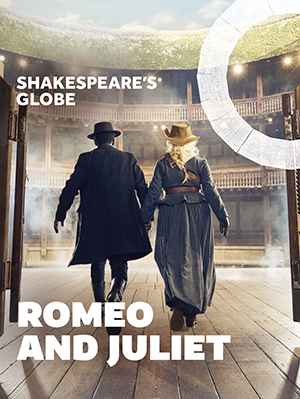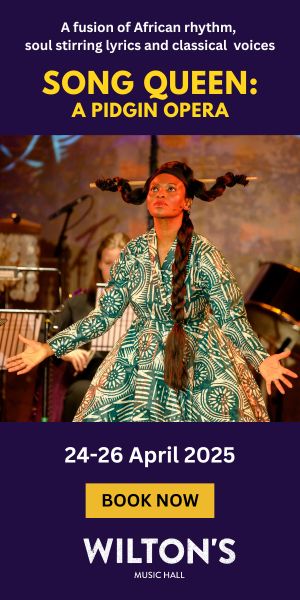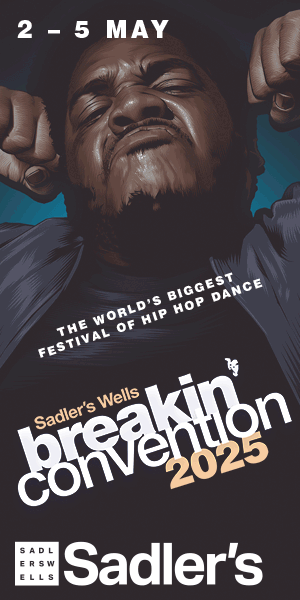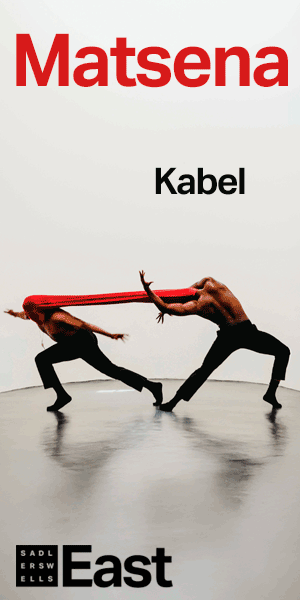Even before the curtain rises, we witness (via pre-recorded footage projected onto the screen) the repetitive, claustrophobic, and mutually dependent existence that ‘Ma’ (Whitney White) and five-year-old ‘Little Jack’ (Harrison Wilding) have to endure.
Once the live-action starts we get to see the first of many of this production’s bold choices: not two performers, but three – as the aforementioned mother and son are augmented by the child’s’ alter-ego’, ‘Big Jack’ (Fela Lufadejo).
Anyone who has either read Emma Donaghue’s 2010 fictional novel, “Room”, or watched the eponymously-titled 2016 film adaptation, must surely appreciate the many challenges in bringing such a story to the stage. The fact that such an ambitious production works as well as it does is a testament to the whole creative team”
This works in a number of ways: as a narrative device, a humorous ‘pressure-valve and, most notably, a way to view Little jack’s inner world without either sugar-coating his reality, or forcing us – the audience – to ‘wallow’ in melodrama.
Backed up by projected animation and a superb set, the three actors dovetail – physically and vocally – to bring both aspects of Jack’s world to life.
There is a ‘big reveal’ once kidnapper ‘Old Nick’ (Liam McKenna) arrives to deliver life-giving supplies, while simultaneously taking spirit-sapping energy; however, it’s not his actual appearance that encourages things to (literally) ‘take a turn’.
As the set revolves 180 degrees, we are given a view from Jack’s wardrobe-vantage point/refuge. It is another masterly choice – one that allows us to remain firmly inside Jack’s head, whilst giving the young actor playing him a similar distance from the scenes of systematic abuse as the fictional ‘Ma’ gives to her son.
The other route through certain dramatic scenes is via a series of live songs. The compositions, by Cora Bissett and Kathryn Joseph, are lyrically challenging and evocative – each containing strong melodic ‘hooks’. Similarly, the musical arrangements of keyboard, guitar, cello, and percussion worked well, in support of White and Lufadejo’s strong and emotional vocal deliveries.
However, despite the musical excellence, I couldn’t help but feel an easing of dramatic tension each time the songs started.
I can offer no greater compliment to Emma Donaghue’s adaptation of her own literary work than to say that – having watched (and adored) the film – I felt this stage production deepened my emotional connection to the story. Surely, that’s all you can hope for when one presents art through a different lens.
At its best, the use of music worked well, adding to the sense of inner turmoil (for instance during the ‘out-of-body rape experience’); oftentimes, however, one felt the story and dramatic performances alone might be enough to carry the day. It is a small complaint and brings to mind the motto: ‘Better to have and not need…’
Anyone who has either read Emma Donaghue’s 2010 fictional novel, “Room”, or watched the eponymously-titled 2016 film adaptation, must surely appreciate the many challenges in bringing such a story to the stage. The fact that such an ambitious production works as well as it does is a testament to the whole creative team.
Certainly, first-among-equals is director Cora Bissett, who draws together this outstanding work. Also, Lily Arnold’s set design is extraordinary – a character in-and-of itself – and is complemented superbly by Alexandra Braithwaite’s sound, David Plater’s lighting and Andrzej Goulding’s video design.
The actors are all superb. Surely both Fela Lufadeju and Whitney White are stars in the making; their singing chops as versatile and emotional as their acting ones.
Elsewhere, Lucy Tregar (‘Grandma’) and Stephen Casey (‘Grandpa’) offer emotional reminders that, in family tragedies, all are affected.
Presumably the other two young actors available to play ‘Little Jack’ are excellent, but it was upon Harrison Wilding that this reviewer’s eyes rested. He gave a performance of subtlety, poise, energy, pathos, and focus; in short, he was excellent.
This is a story of female abduction, serial-rape, Stockholm’s Syndrome, familial grief and forced motherhood-turned-raison d’être.
However, at its core, it is a tale of mental and physical perseverance over great odds (and wickedness), and about the spiritual stamina it takes to search for – and travel towards – love, no matter how long the journey or the sacrifices needed to maintain it.
It is about how we – as grown ups – need children to remind us of life’s possibilities; just as children need adults for protection against some of them.
Finally, it is about the delicate balance that exists in us all – between ‘the adult’ and ‘the child’ – and how there should always be ‘room’ made for both.
I can offer no greater compliment to Emma Donaghue’s adaptation of her own literary work than to say that – having watched (and adored) the film – I felt this stage production deepened my emotional connection to the story. Surely, that’s all you can hope for when one presents art through a different lens.























